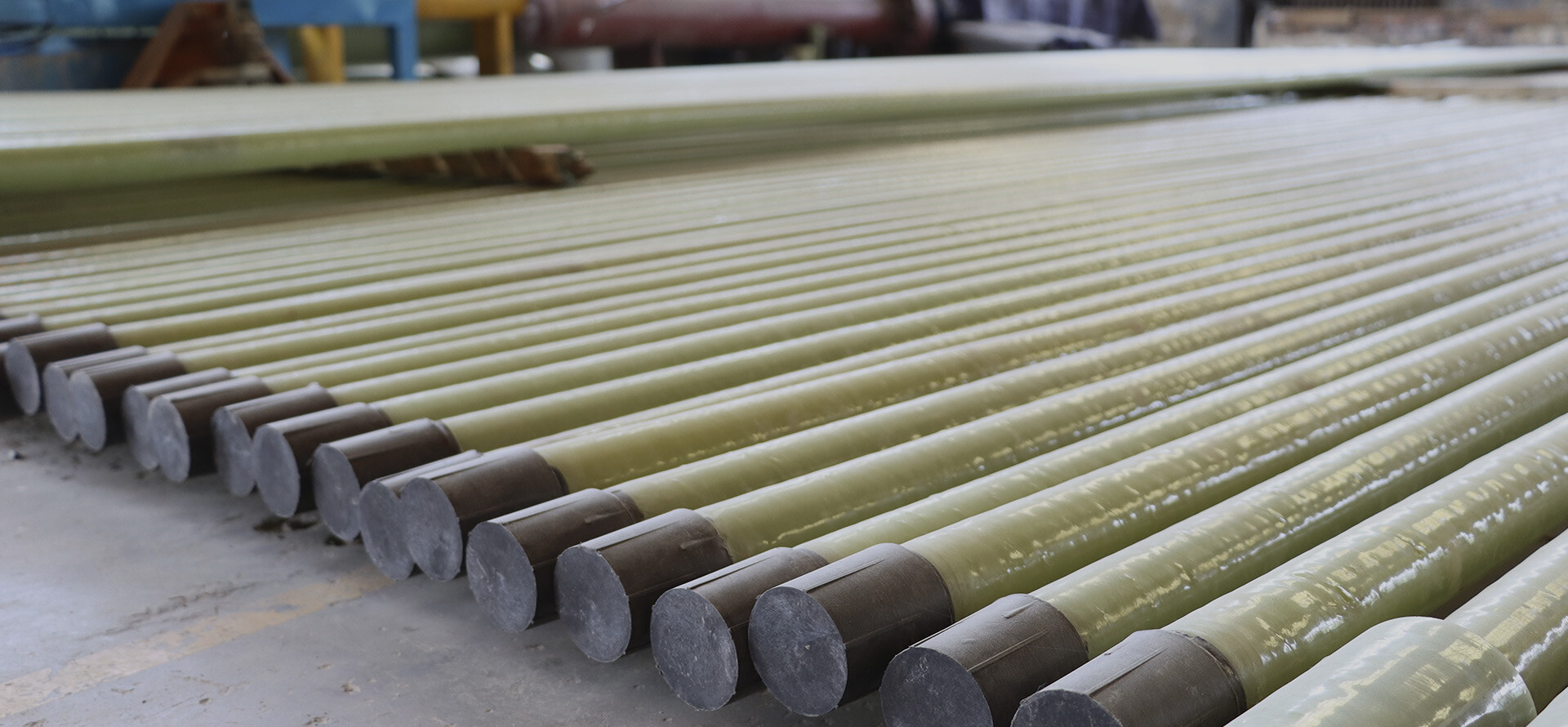
Application of GRE Pipes in Oil and Gas Fields
GRE pipes have become an important alternative to traditional carbon steel pipes in the oil and gas sector, particularly in upstream extraction and production processes, primarily addressing the long-standing challenge of corrosion.
Main Application Areas of GRE Pipes in Oil and Gas Fields
Leveraging their unique properties, GRE pipes play a significant role in various stages of oil and gas field operations. Their specific application areas are summarized in the table below:
Core Advantages of GRE Pipes in Oil and Gas Fields
1. Exceptional Corrosion Resistance
◦ This is the primary reason GRE pipes replace carbon steel pipes. They effectively resist internal corrosion caused by H₂S, CO₂, dissolved salts, acidic media, and SRB, as well as external corrosion from soil and seawater. This fundamentally solves issues like corrosion leaks and short service life common in carbon steel pipes.
2. Excellent Hydraulic Properties
◦ Extremely Smooth Inner Wall: Its absolute roughness is much lower than that of steel pipes, resulting in low hydraulic friction. This significantly reuces pumping pressure and saves energy, especially in water injection.
◦ Scale Resistance: The smooth inner wall minimizes scale deposition, maintaining pipe diameter and stable flow rates over the long term, reducing pigging requirements. This is particularly beneficial for water injection and produced water lines prone to scaling.
3. Lightweight yet High-Strength, Easy Installation
◦ GRE pipes weigh only 1/4 to 1/5 of comparable carbon steel pipes. This offers tremendous advantages during installation, especially in remote areas, offshore platforms, or marshlands, significantly reducing transportation, lifting costs, and improving construction efficiency.
4. Low Total Life Cycle Cost
◦ Although the initial purchase cost of GRE pipes might be higher than carbon steel pipes, their greatly reduced or eliminated need for anti-corrosion coatings, no requirement for cathodic protection, very low maintenance needs, and long service life typically result in a much lower total life cycle cost compared to carbon steel pipes.
5. Good Thermal Insulation Properties
◦ GRE has a very low thermal conductivity, about 1% of steel. This results in low heat loss during fluid transfer, potentially allowing for reduced insulation thickness in some cases.
Please give us a message
产品介绍产品介绍产品介绍产品介绍产品介绍产品介绍产品介绍产品介绍产品介绍产品介绍产品介绍产品介绍产品介绍产品介绍产品介绍产品介绍产品介绍产品介绍产品介绍产品介绍产品介绍产品介绍产品介绍产品介绍产品介绍产品介绍产品介绍产品介绍产品介绍产品介绍
Please give us a message
产品介绍产品介绍产品介绍产品介绍产品介绍产品介绍产品介绍产品介绍产品介绍产品介绍产品介绍产品介绍产品介绍产品介绍产品介绍产品介绍产品介绍产品介绍产品介绍产品介绍产品介绍产品介绍产品介绍产品介绍产品介绍产品介绍产品介绍产品介绍产品介绍产品介绍
Please give us a message
产品介绍产品介绍产品介绍产品介绍产品介绍产品介绍产品介绍产品介绍产品介绍产品介绍产品介绍产品介绍产品介绍产品介绍产品介绍产品介绍产品介绍产品介绍产品介绍产品介绍产品介绍产品介绍产品介绍产品介绍产品介绍产品介绍产品介绍产品介绍产品介绍产品介绍
Please give us a message
产品介绍产品介绍产品介绍产品介绍产品介绍产品介绍产品介绍产品介绍产品介绍产品介绍产品介绍产品介绍产品介绍产品介绍产品介绍产品介绍产品介绍产品介绍产品介绍产品介绍产品介绍产品介绍产品介绍产品介绍产品介绍产品介绍产品介绍产品介绍产品介绍产品介绍
